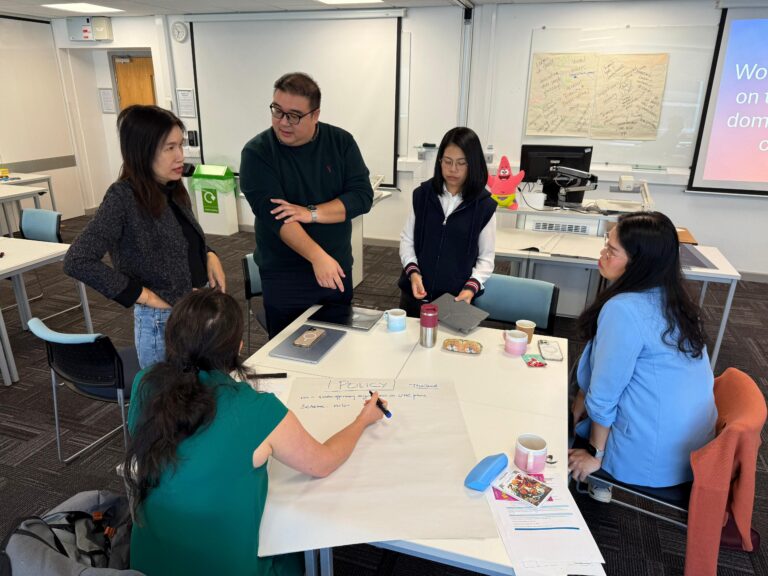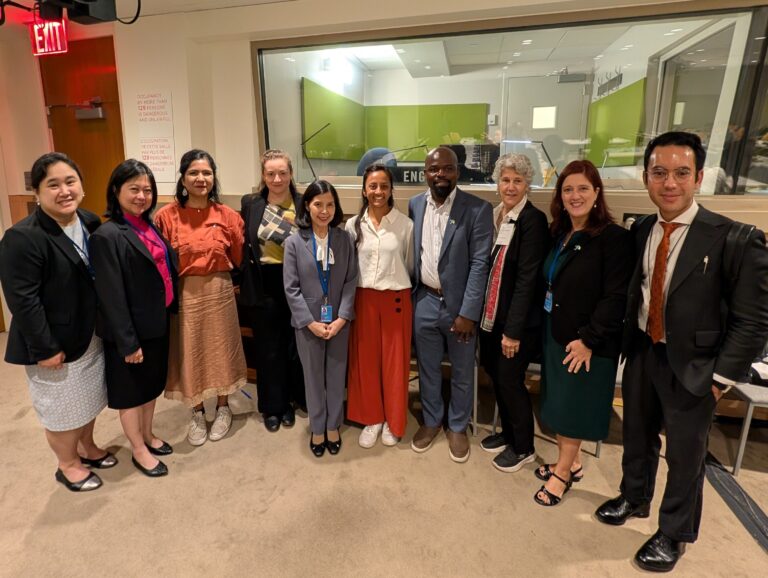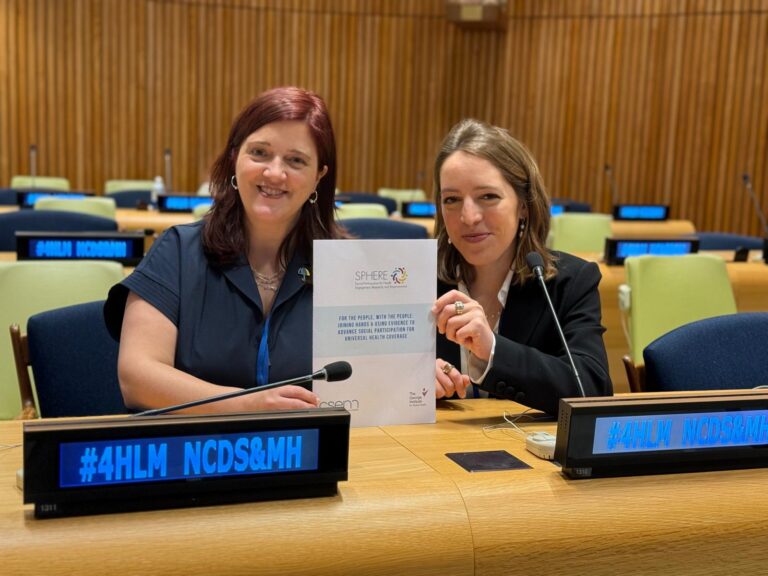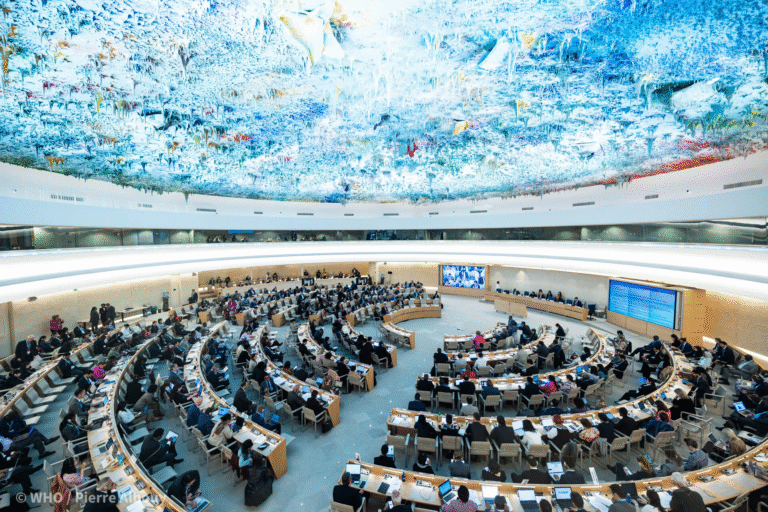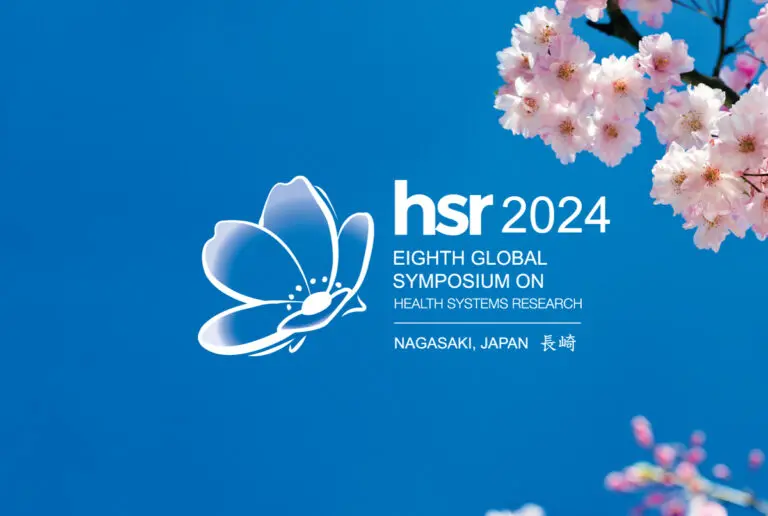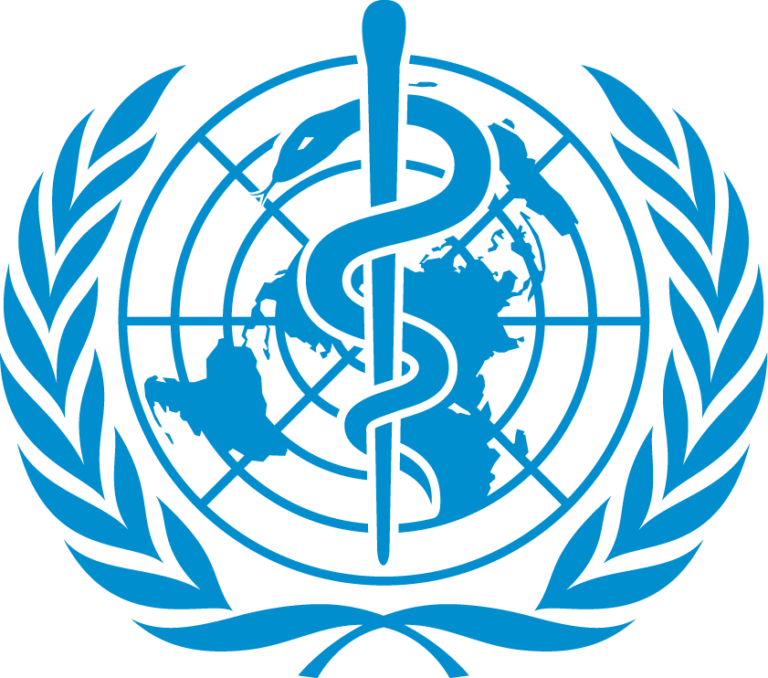Meaningful public participation in system decision-making is needed to promote democracy, social inclusion, sustainable development, and well-being. It is a critical aspect of the right to health, enhancing the responsiveness and inclusiveness of health system decisions. Moreover, the right to participate in political and public affairs is enshrined in international instruments such as the Universal Declaration of Human Rights and the International Covenant on Civil and Political Rights.
Though progress has been made to actualize the right to participate, many people devastatingly face barriers to participation, including barriers rooted in discrimination. Some government responses to the COVID-19 pandemic have further eroded the right to participate in political and public affairs, especially for marginalized communities.
To distill lessons around public participation in COVID-19 pandemic response and recovery, the United Nations Human Rights Office hosted a hybrid workshop on May 31st. Featuring panelists from civil society, academia, government, health, and human rights organizations, the workshop consisted of three sessions.
Session I highlighted challenges to and good practices for ensuring the right to participate in public affairs during the COVID-19 pandemic. Panelists illuminated that the need for expedited decision-making limited transparency and accountability with respect to government COVID-19 responses. Given public health measures such as social distancing, it also became more difficult for citizens to gather (e.g., in protest) and amplify critical perspectives. Amidst these challenges, community members developed innovative ways to raise their voices, as highlighted in this CIVICUS report which documents admirable examples of civil society advocacy and government-civil society collaboration during the COVID-19 pandemic.
Session II focused on the role of participation in achieving public health, including in the context of the COVID-19 pandemic and post-pandemic recovery. Among the panelists was Ms. Carmen Ryan, representing Fundación Huésped and SPHERE. Carmen asserted that participatory mechanisms are human rights and ethical requirements, and essential for the development of effective, resource-efficient programs. The digital participatory spaces fostered by Fundación Huésped to elicit community perspectives on COVID-19 policies offer lessons for enabling inclusive community participation. Access to information is a prerequisite for community participation and can be fulfilled through capacity strengthening activities such as an online course developed by Fundación Huésped. Crucial is the need to adapt participatory mechanisms as evaluatory evidence emerges—for example, when Fundación Huésped found that some community members could not engage with their online course, they introduced cell phone data coverage and adapted the web-based course for WhatsApp. Through concrete, sustained efforts to make participation more accessible, Fundación Huésped heard diverse community perspectives on COVID-19 policies and identified how responses could be improved (e.g., through efforts to dispel misinformation), illustrating the public health benefits of participation.
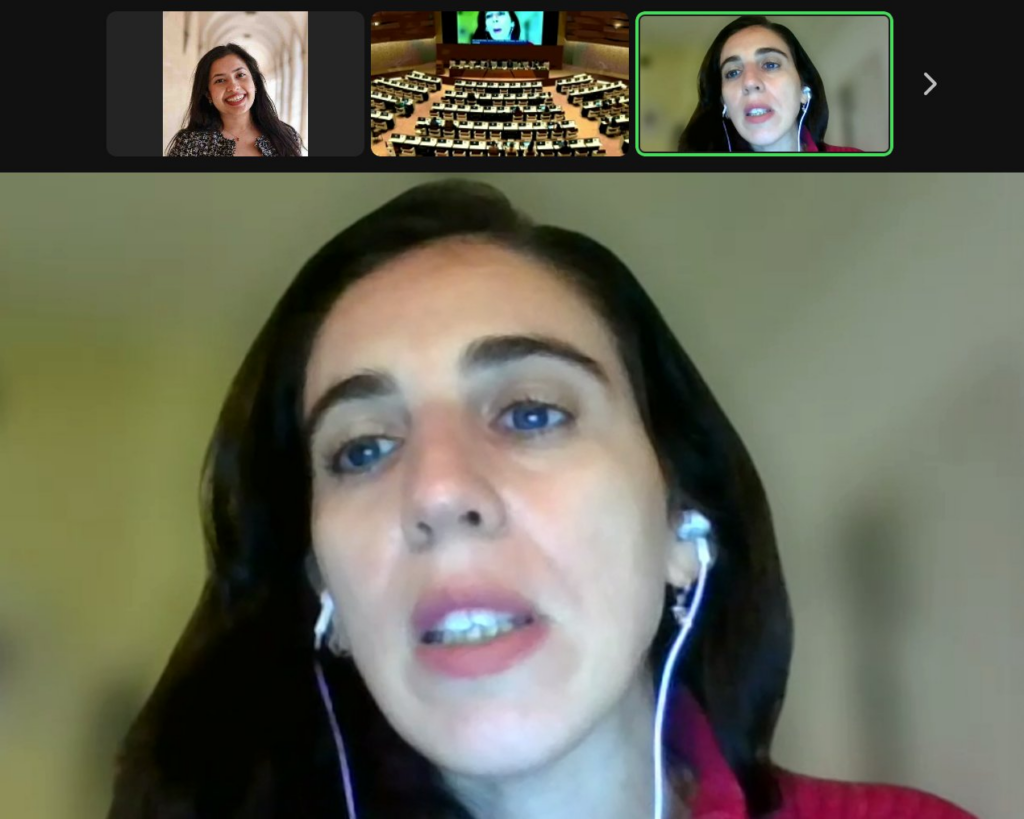
Dr. Margaret Lubaale—representing Health NGOs’ Network (HENNET) and SPHERE—paneled in Session III, which explored how the right to participate can be realized during future health crises. Drawing from stories of hope in Kenya, Margaret noted the importance of (1) proactive engagement of civil society organizations that are closely connected to communities, (2) flexible public engagement and adaptation of policies based on emerging evidence, (3) offering informational resources about the health crisis and policy processes, and (4) instituting protections for civil society and community members. Margaret also called for international solidarity, especially between Global South countries. For example, cross-country exchange of experiential knowledge and the development of global standards can help countries understand best practices around public participation. Relatedly, multilateral organizations such as the WHO can provide countries with guidance and technical support for fostering participation.

Across all the sessions, a resounding theme was that inclusive, broad-based community participation in pandemic response and recovery is essential.
A more detailed summary of the workshop discussions will be submitted to the Human Rights Council in September of this year. The session recording is available here.
Learn more:
- Resolution adopted by the Human Rights Council on 7 October 2021 – Equal participation in political and public affairs
- Civil society space: COVID-19: the road to recovery and the essential role of civil society – Report of the United Nations High Commissioner for Human Rights
- Good practices and challenges faced by States in using the guidelines on the effective implementation of the right to participate in public affairs – Report of the Office of United Nations High Commissioner for Human Rights
- Impact of the coronavirus disease (COVID-19) pandemic on the enjoyment of human rights around the world, including good practices and areas of concern
- Report on the promotion, protection and implementation of the right to participate in public affairs in the context of the existing human rights law: best practices, experiences, challenges and ways to overcome them
- Guidelines for States on the effective implementation of the right to participate in public affairs
